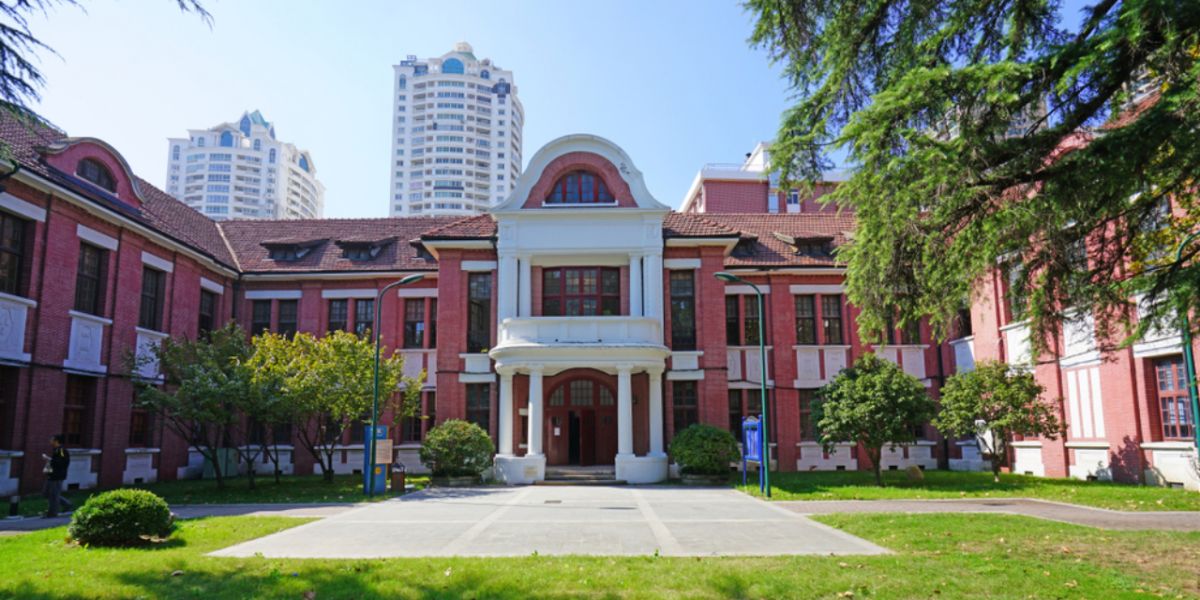
China's largest city is also the country's commercial hub and one of the trendiest cities in Asia. The city of 25 million people offers exciting entertainment and shopping facilities as well as historical and cultural sites and attractions. Because of China's quick economic boom in recent years, Shanghai has completely transformed, but you can also visit old quarters and travel back in time to Old Shanghai.
Why study in Shanghai?
Shanghai is the prime example of the 'New China'. Most of the country's upper-class live here in some of the world's most expensive neighborhoods. However, the city indeed offers something for anyone and on any budget, especially those hoping to study in Shanghai. The city headquarters innovative Chinese firms as well as leading international companies, such as Coca-Cola, IBM, Mercedes, Nikon, and others.
Shanghai has always held a special place in Chinese history and the country's economic development. Having first transitioned from a small fishing village to China's main port and home to foreign concessions, it has later become the country's first Free-Trade Zone meant as a testing ground for many economic and social reforms.
The city's openness to foreign trade, as well as the diverse mix of cultures and ethnicities, have had a significant impact on the development of the city's educational establishments. In fact, seven Shanghai universities have earned a spot on the QS World University Rankings (2018): Fudan University ranks 40th and Shanghai Jiao Tong University takes 62nd place.
Due to Shanghai's position in international business as the world's busiest container port, companies are looking for people who are eager to start an international career. Once you graduate from a university in Shanghai, you can work for a multinational company in the city and move across the world to a different branch after a couple of years. Whether you see yourself in finance, commerce, education or another industry, if you are successful in finding a job in Shanghai, your career will be off to a great start.
The academic environment in Shanghai
China is home to over 400,000 international students, a significant part of which are studying in Shanghai. The city ranks 29th on the QS Best Student Cities index. The high scores in employer activity (14th) and student experience (3rd) show the city's prestigious universities are viewed favorably by graduates and employers alike.
The Chinese government has recently realized plans to persuade international students further to remain in China by implementing new policies that allow international students to take on internships and part-time jobs, and even start their businesses in China after graduating, something that has been somewhat difficult in the past.
The teaching culture in Shanghai
The Chinese education system is rather hierarchical, which means you'll always formally address the teachers as 'professor' or “laoshi” in Chinese. Whether you will be part of a fixed group of students with the same timetable or attend your classes individually with different students, each lecture depends on your major. Your grades will be calculated through exams and sometimes projects that the professors can assign as they please.
While some lectures may be held in English, most programs require you to have at least an intermediate level of fluency in Chinese to enroll. If you do not speak Chinese, you will have to attend a one-year intensive Chinese language course. After the course, you will take the Chinese fluency examination HSK. You need to pass level 4 to be allowed to apply for courses.
Shanghai's leading universities
Shanghai is in 36th place in the QS Best Student Cities of 2023, ranking exceptionally high in student experience and employer activity. This means you do not only have a high chance of having a good time studying in Shanghai, but you will also benefit from post-graduate employment opportunities with major companies in China, as well as back home.
Fudan University
Founded in 1905, shortly before the end of China's imperial Qing dynasty, Fudan University consists of four campuses in downtown Shanghai, including Handan, Fenglin, Zhangjiang, and Jiangwan. It is also one of the most prestigious universities in China. As per the QS University Ranking of 2018, it ranked 40th among the world's top universities and 30th in the field of Materials Sciences.
The university has 17 schools covering four departments. There are 68 specialties for Bachelor's students, 209 specializations for Master's students and 157 specializations for Ph.D. candidates. The university counts over 44,000 students, including 4,400 international students. You can find more information regarding admissions at Fudan University.
Shanghai Jiao Tong University (SJTU)
This university was established in 1896 by the Guangxu Emperor, making it one of the first national institutions of higher learning in China. Today, Shanghai Jiao Tong University is also one of the most prestigious and selective universities in China. According to the QS World University Rankings, SJTU was ranked 62nd overall, 25th in the field of Material Sciences and 29th in the field of Engineering and Technology.
Shanghai Jiao Tong University has 20 schools with 60 undergraduate specialties, 152 Master's Degree programs and 14 state laboratories and national engineering centers. The faculty counts 1,420 professors and associate professors, as well as well-known scientists. The student body counts over 38,000 students, including more than 2,800 international students.
Tongji University
This university was founded by German physicians and supported by the German government in 1907. Today, Tongji is one of China's oldest and most prestigious universities. The school is renowned for its excellent programs in engineering, business and architecture, and its civil engineering department ranks first in China year after year.
According to the QS World University Rankings 2023, Tongji University was ranked 212th overall. The school's student body amounts to nearly 36,000, including nearly 4,000 international students. Moreover, the university has a faculty of almost 3,000 professors and associate professors, including more than 800 international staff. If this sounds interesting, check out the Tongji University Website.
East China Normal University (ECNU)
East China Normal University was formed in 1951 and aimed at teacher training for secondary and higher education, as indicated by the 'Normal' in the university name. However, today, ECNU is one of the top-class research-intensive universities in the world. The university counts 23 schools, two colleges, 11 research institutes, and 58 departments. Currently, over 25,000 students are enrolled, including over 4,200 international students.
What are the entry conditions to Shanghai universities?
Because of the large number of universities in Shanghai, it isn't too hard to get accepted into a program. Most universities also have a high quota on foreign enrolment allowing international students to enter much more easily than fellow Chinese applicants. However, there are a few basic requirements that must be met by international applicants.
Firstly, you will be required to provide a clean criminal record check. Transfer students also need to submit a certificate of agreement from their school. While some programs are available in English, many courses are taught in Chinese only. That's why international students have to provide an HSK certification of level 4 or higher, proving their Chinese language proficiency. Just like universities back home, students applying for a Master's need to submit a copy of their transcripts and several recommendation letters.
International students in China are required to purchase both health insurance and personal accidental death and injury insurance. These can be purchased before or after arrival in China. International students staying in China longer than six months are required to be covered by health insurance for the duration of their stay in China. International students studying in China for longer than a year are required to undergo a physical examination, which should be performed in a public hospital one month before departure. If the examination is conducted in a private hospital, the student should get the certificate notarized.
Tuition fees and scholarships in Shanghai universities
The average tuition fees at Chinese universities range between USD 3,300 and USD 10,000 per year. Fees for programs that are taught in English average between 2,200 and 4,500 USD a year. It's worth noting that degrees in Medicine, Engineering, or Business are amongst the most expensive, ranging between 24,000 and 50,000 USD a year. There are several foreign universities with a China campus that average more higher, at around 12,000 USD/year for a Bachelor's degree.
There are many scholarships in place for international students in China. For example, there is a scholarship aimed explicitly at EU students looking to gain funding to study at a university in China. Moreover, The Great Wall Program was established to support students from developing countries coming to China to study for a year at any degree level. Ph.D. students, as well as applicants from other Asian countries and worldwide, will also have access to other scholarships.
The following eligibility requirements apply:
- Graduate degree or higher from a Chinese or reputable overseas university, graduation within one year
- At least 18 years old
- Clean criminal record
- An average grade of at least 80 on a 100-point scale and no disciplinary record
- Degree in a field related to proposed work in China
- A confirmed job offer from a company in China
- A salary offer that is not less than standard local wages for the position
- A valid passport
Undergraduates are unable to apply for work visa's straight away and need to adhere to the previous regulations that require a minimum of 2 year's work experience to secure a work visa in China.
Entertainment, history and KTV in Shanghai
In a city of nearly 25 million, there is always something going on. The Bund, the iconic Oriental Pearl Tower, or Nanjing Road, make Shanghai what it is today: a fast-paced mix of East and West. However, you can also find historical attractions such as the Jade Buddha Temple or the French Concession district. On top of that, Disneyland Shanghai opened just recently, adding one more fascinating appeal to the vibrant city.
On regular nights, the people of Shanghai love to go out with friends to eat and drink. Shanghai has a huge bar scene in Xin Tian Di, and you can find Chinese karaoke rooms, or KTVs, all over the city.
Xujiahui is the downtown area of Shanghai. It is a popular place for shopping and also has a beautiful park. Moreover, it's where basketball legend Yao Ming was born. The Former French Concession, called FFC by locals, is an iconic neighborhood in the city. It was once the center of the city where the first foreigners settled and did business in. Today, you'll find some of the best bars there. People's Square is one of the hottest destinations for tourists as it has Shanghai's most extensive pedestrian street, Nanjing Road, and it's also close to the Bund, where you have the iconic skyline views of Shanghai. It's precisely those iconic views that make up the neighborhood of Pudong. It's located east of the Huangpu River and has become the city's financial heart.
How to apply for a student visa to China
To apply for a student visa to China, you can submit your visa application together with the supporting documents at the Chinese VISA Application Service Centre or the Chinese Consulate or Embassy in your home country.
First, make sure that the education establishment you are applying to has the right to offer courses for foreign nationals. If your application is successful, the establishment will send you an admission letter as well as a JW201 or JW202 form to complete.
Keep these documents as you will need to submit them together with your application at the Embassy. You will also need to present the following supporting documents:
- Original passport valid for at least six months;
- passport-size photograph;
- copy of the acceptance letter (together with the original);
- proof of legal status in the country you are applying from; and
- evidence of your flights and arranged accommodation.
For post-graduate education programs, you will also be asked to present photocopies of your diplomas and academic transcripts translated into Chinese.
Once your visa is approved, you will need to take a series of medical examinations. Depending on the educational establishment you plan to study at, you may be asked to do a medical check in your home country or upon arrival in China. It is usually recommended to do the medical examination once you arrive in China to make sure it's completed in the right format. Moreover, some universities may arrange for groups of students to go through the check together. Your medical certificate is valid for six months.
Those with an X1 Visa will need to apply for a Temporary Residence Permit within 30 days of arriving in China. The permit is typically issued for a minimum period of 6 months and a maximum of 5 years.
Important:
You are not allowed to work on a student visa. Internship options may be available (check with your school/university), as well as volunteering.
The list of required documents may vary depending on your country of residence and the study program you are applying for. Contact your Chinese Embassy for an updated list of documents needed before the appointment.
Study Chinese in Shanghai
If you are not ready to commit to a full-time study program in Shanghai, consider taking up a Chinese language course. If you are interested in exploring China and learning more about the country, signing up for a Chinese course may be a great way to do that. Some universities and a lot of training centers in Shanghai offer specialized courses for learning Chinese. This can be a great way to explore the country and its culture, network with fellow students from around the world and discover job opportunities in Shanghai and beyond. Speaking Chinese can be a substantial advantage when job hunting and may open a lot of doors if you are considering a career in China.
Useful links:
Study in China run by the Chinese Government
We do our best to provide accurate and up to date information. However, if you have noticed any inaccuracies in this article, please let us know in the comments section below.








